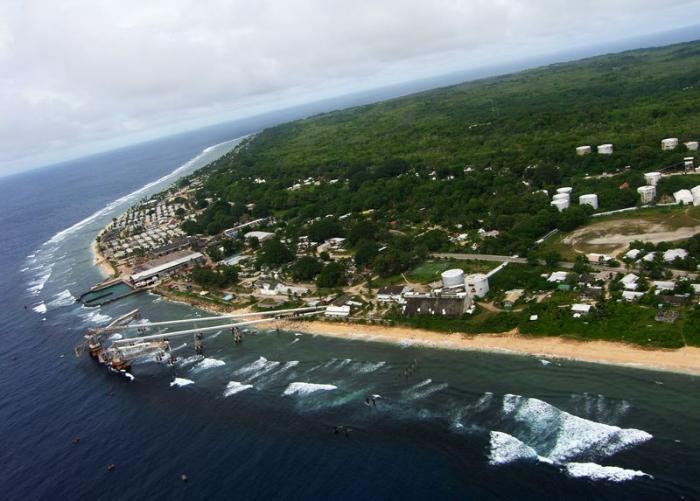
As part of the Customs reform plan, Customs Division in Nauru wishes to advice businesses that it will shift from a paper based system to a computerised system in the next few months.
This change to an “automated lodgement process” will require the importer to use an Electronic Self-Assessed Declaration (ESAD) and the commodity being imported must be classified to the Harmonised Tariff that was passed by parliament in 2014. The paper based system currently in use will be phased out over time.
The legislation requires the importer or their agent (a Customs broker or a compiler) compile their own self-assessed declaration as the principle is one of self-compliance. Customs can no longer keep doing this work for traders or importers.
This is a standard practice regionally in the Pacific and across the world. It requires traders to either use a customs broker or become proficient at using the harmonised tariff themselves. If there are errors in the documentation or the ESAD, it is returned to the importer or agent for rectification, the release of cargo may be held up until those errors are fixed.
Customs hopes to provide training to business on the Harmonised Commodity Classification System in the next few months and is planning to recruit a Tariff trainer to assist in the education of the Tariff. Customs will adopt an “educate first” policy whilst the trading community adjusts and learns the new process but it is expected that by this time next year the trading platform will be based on a “compliance enforcement continuum “ model reflective of modern benchmarks in Customs modernisation .
Traders are strongly urged to consider the use of a customs broker or compiler to complete their entries. Enterprising business houses may recognise a revenue stream by recruiting customs brokers or compliers to work in Nauru to provide a service to individuals or small businesses and train up local people to become brokers.
Private industry does have a role to play in modern trade facilitation reforms and this is an opportunity for enterprising and motivated individuals or businesses to establish themselves as a customs brokerage.
A copy of the harmonised tariff and ESAD are available electronically at customs, please bring a thumb drive to obtain your copy.
In terms of timing, Customs expects to receive its automated computer system late September or early October 2015 and will start by training staff in its use so they can accept the importers ESAD. Tariff awareness and training on the ESAD will be provided to importers. Customs will then slowly roll this out to large trading bodies, some of which have already been trialling the ESAD, and then into medium sized and small businesses thereafter.
Individual importers will still be assisted by Customs during this transition phase but eventually all importers will need to either compile their documentation themselves, or seek the use of a customs broker.
Customs reiterates it will work with the trading community to avoid disruption and will be sending Customs staff to Kiribati shortly to learn their system as it will be replicated here. Staff will also be trained up as Tariff trainers so that they can go amongst business houses and educate traders on the tariff.
For any questions please contact the Deputy Secretary of Customs, Richard Brennan on 5579213.
